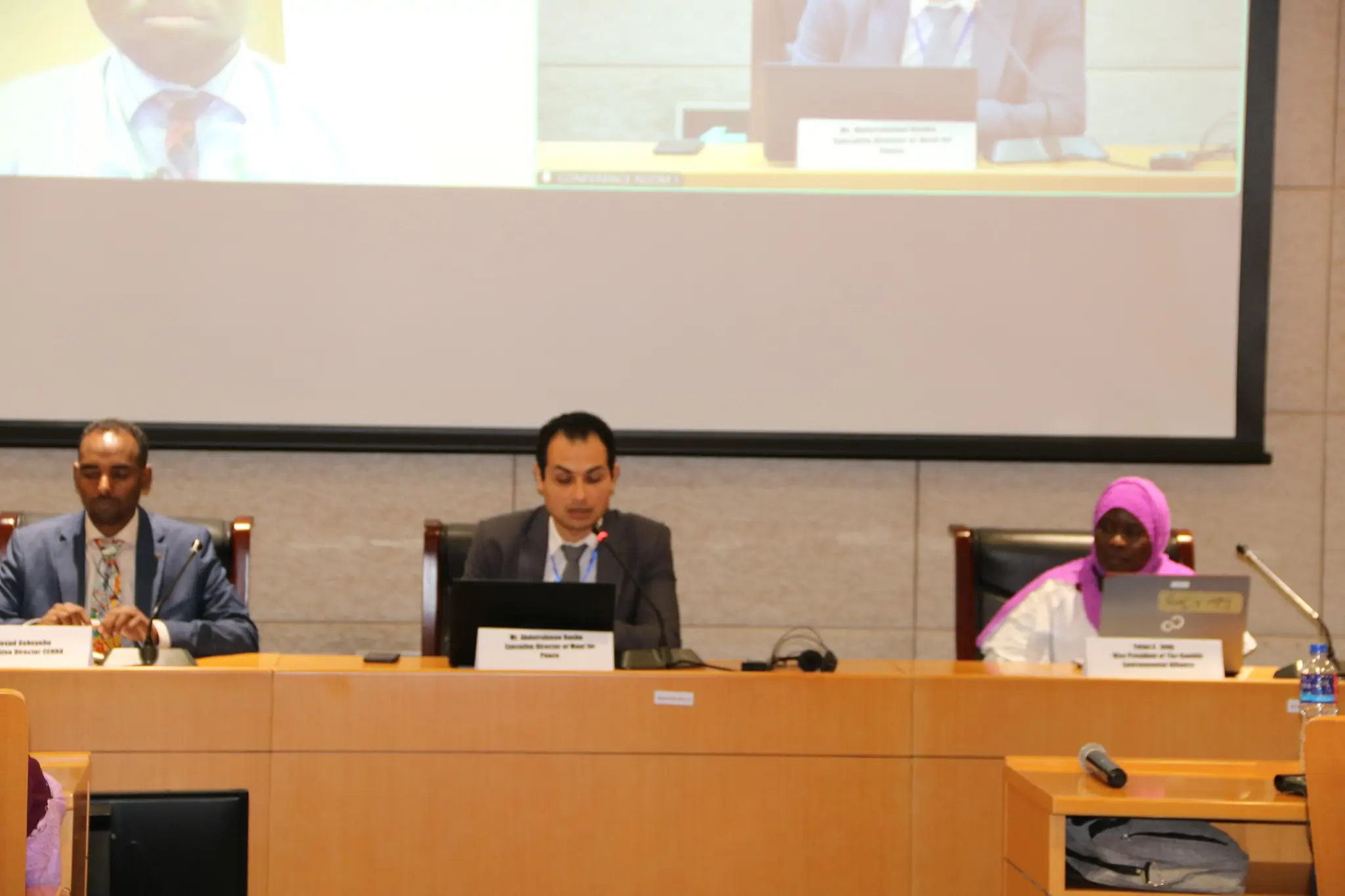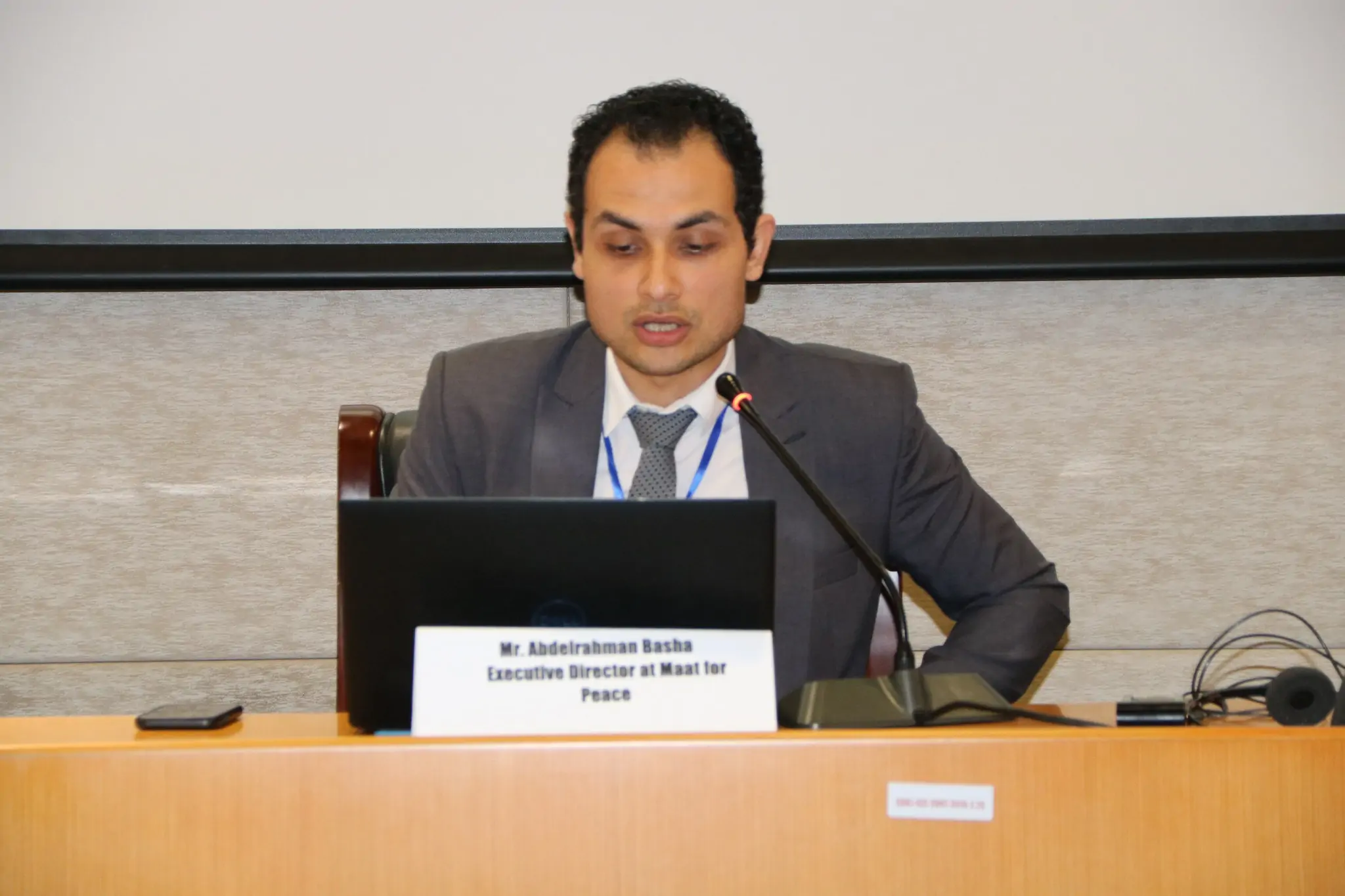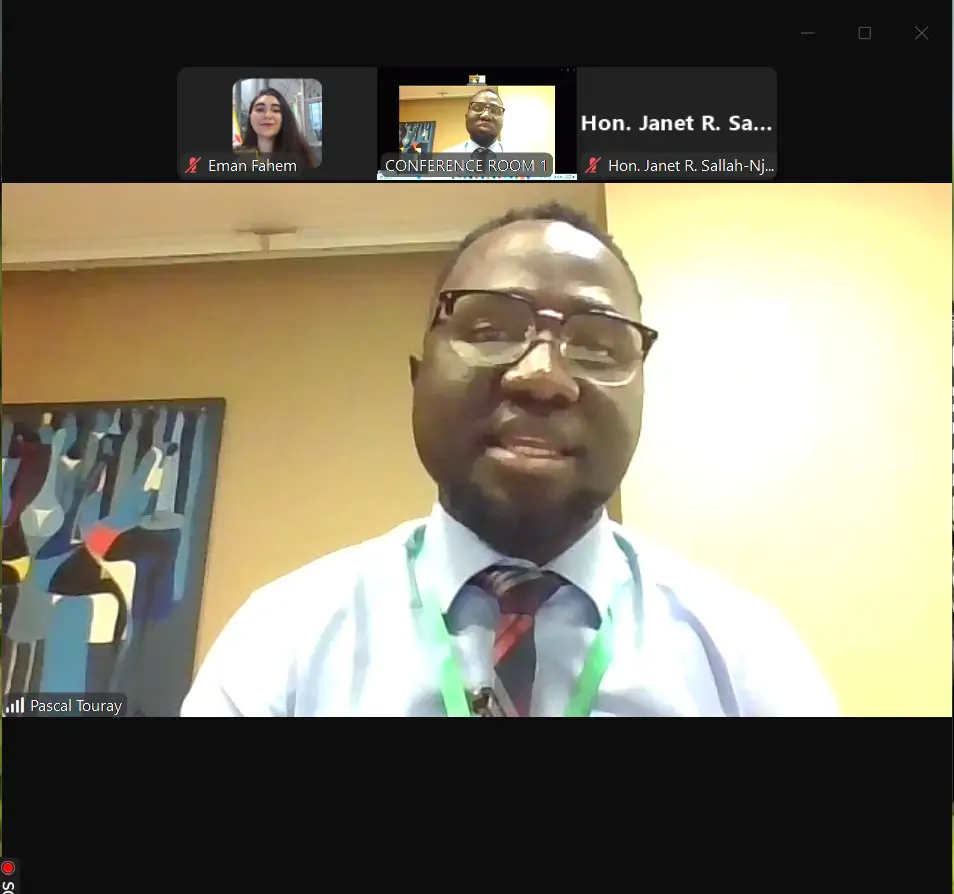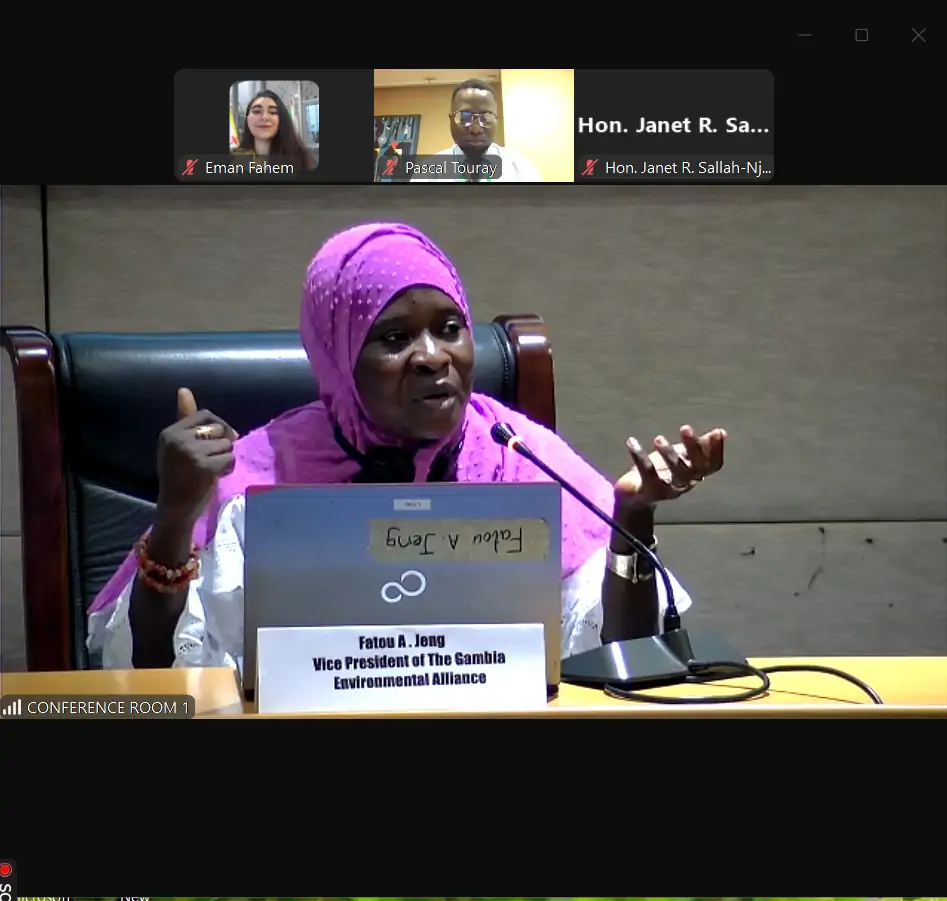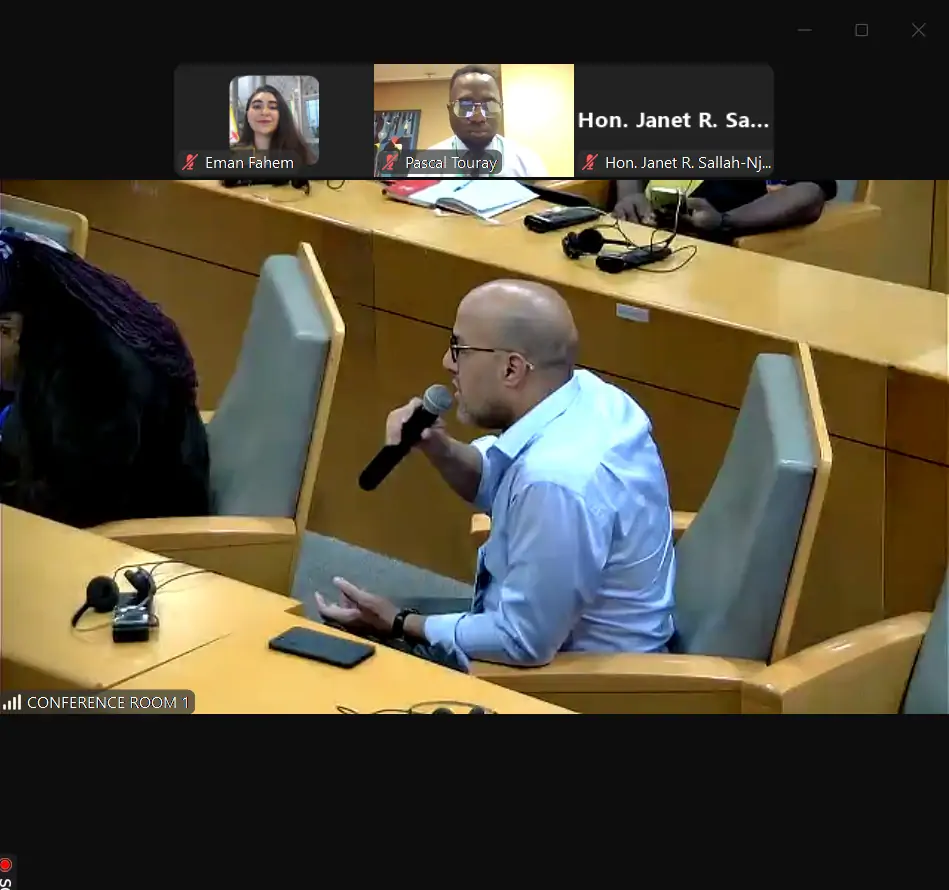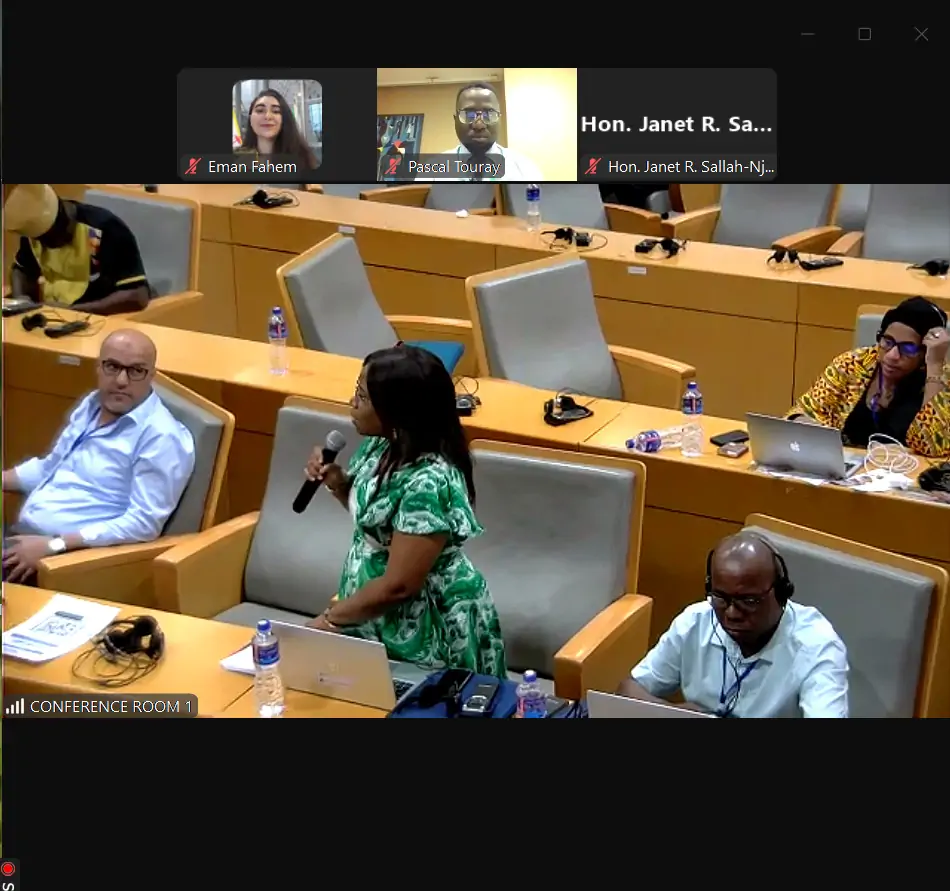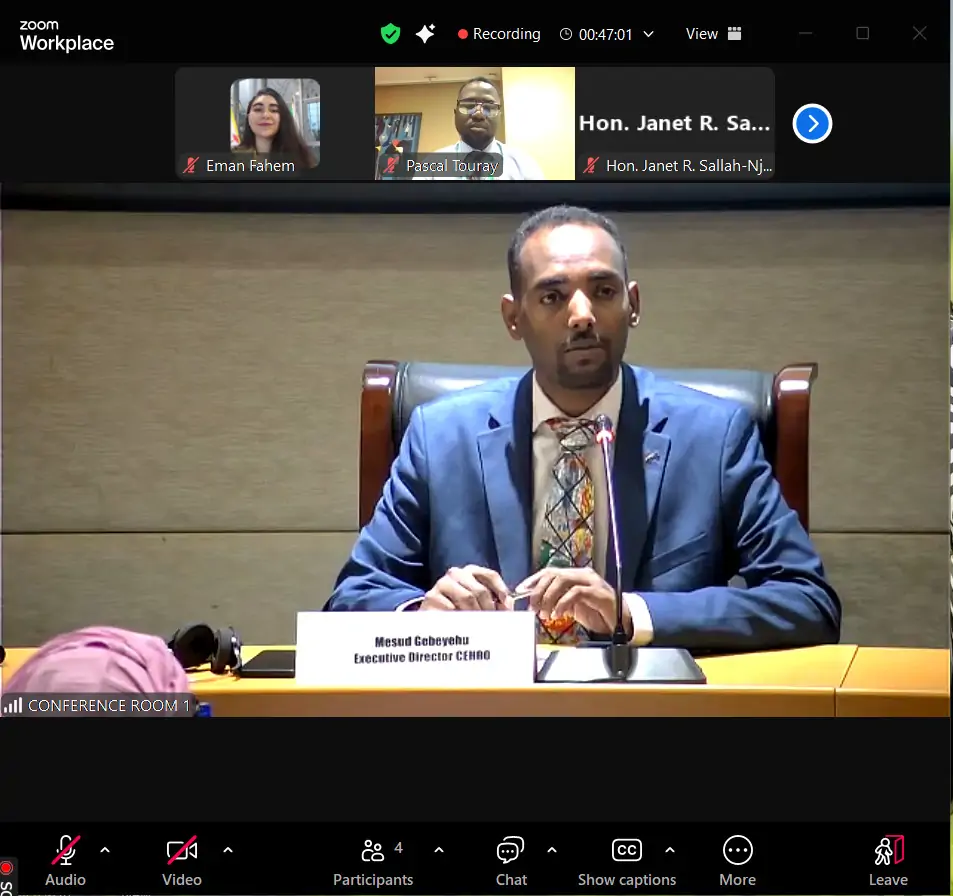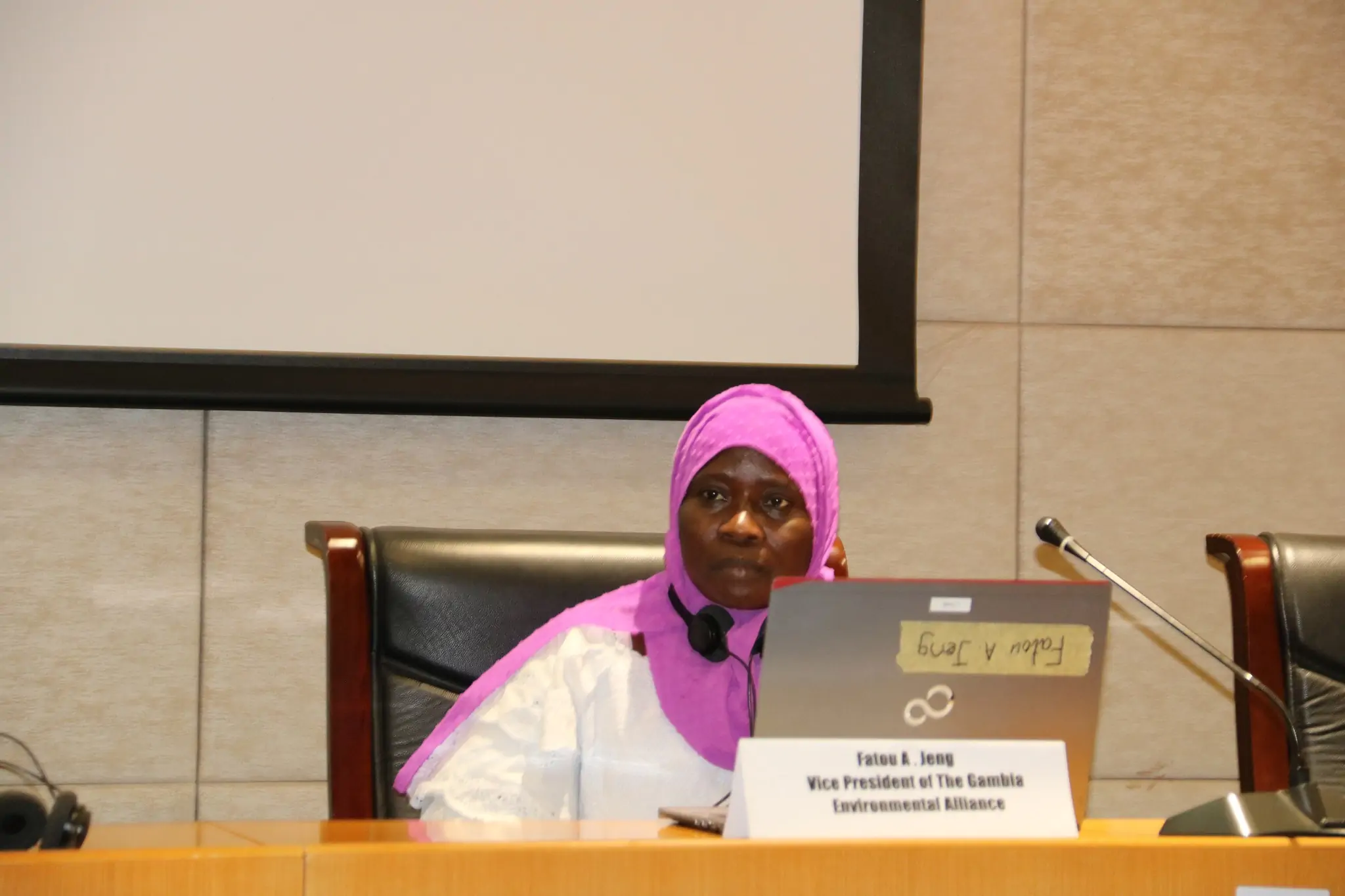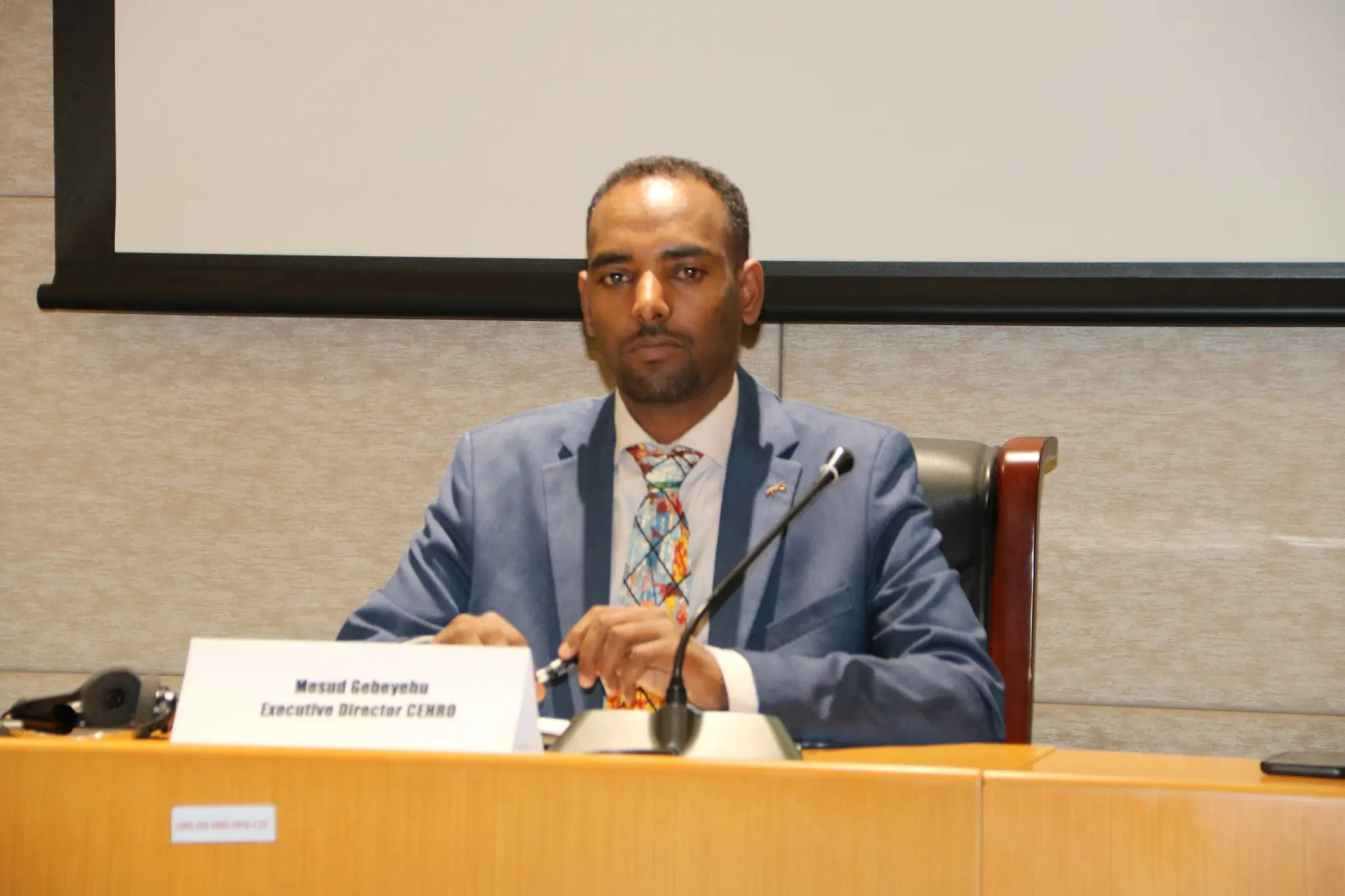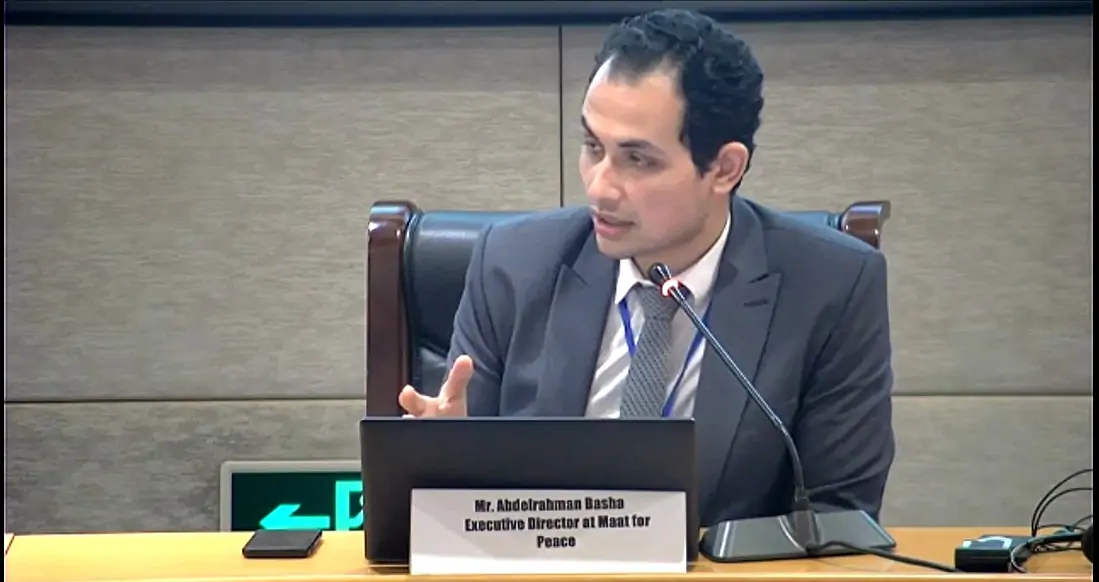Abdul Rahman Pasha: ECOSOCC is a platform for integrating the voice of civil society in policymaking for the African continent.
Pascal Touray: We have helped amplify the voices of civil society organizations documenting the human rights situation in Sudan.
Masoud Jebihou: We demand increased funding and resources available to ECOSOCC as they are extremely limited.
Fatou A. Gaye: ECOSOCC must fulfill its oversight role in directing efforts towards a developmental environmental vision for the continent.
Maat for Peace, Development, and Human Rights organized a session entitled "Protecting Civil Space in Africa: Role of the Economic, Social, and Cultural Council (ECOSOCC) in Enhancing the Participation of Civil Society Organizations Amid Increasing Restrictions," as part of the 83rd session of the NGO Forum preceding the 83rd session of the African Commission on Human and Peoples' Rights in Banjul, Gambia, featuring a selection of African speakers and human rights advocates.
The session was moderated by Abdul Rahman Pasha, Executive Director of Maat, who opened the discussion by introducing ECOSOCC and highlighting its importance as a primary platform for civil society to participate in policy-making, principles, programs, and Agenda 2063. He emphasized its aim to amplify the voice of civil society for its inclusion in decision-making processes concerning the African continent and called on everyone to engage and participate in its upcoming membership elections in December 2026.
Pascal Touray, a member of the ECOSOCC General Assembly from Gambia, confirmed the existence of real challenges in protecting civil space, but noted that ECOSOCC remains a key player in linking civil society with governments, especially in complex contexts like Sudan, where we have helped formulate mechanisms to enhance the presence of civil society. He pointed to ECOSOC's role in empowering newly established and small organizations led by women and enhancing their ability to reach decision-making tables within the continent.
Masoud Jebihou, Executive Director of the Ethiopian Human Rights Organizations Alliance, spoke about the challenges facing civil society organizations within ECOSOC, stressing the need to expand the representation of civil society, as it suffers from underrepresentation in several countries due to conflicts and disputes. He emphasized the necessity of increasing funding and resources available to ECOSOC, which are currently very limited.
Fatou A. Gaye, Vice President of the Gambian Environment Union, noted that Africa has been significantly affected by global warming and climate changes despite contributing the least to the climate crisis. She stated that ECOSOCC should play an oversight role in monitoring the environmental situation of countries and encourage civil society to submit shadow reports on the environmental reality in the continent, while also supporting governments through information exchange regarding environmental realities and directing efforts towards a developmental vision for the continent's environments, and to work on Resolution No. 372 at the national policy level.
The session concluded with several recommendations focusing on enhancing ECOSOCC funding, empowering small organizations, adopting a national activation framework within countries for the African Charter, and expanding cooperation mechanisms between civil society and governments in the fields of human rights and environmental justice.
shortlink: https://maatpeace.org/en/?p=44526


